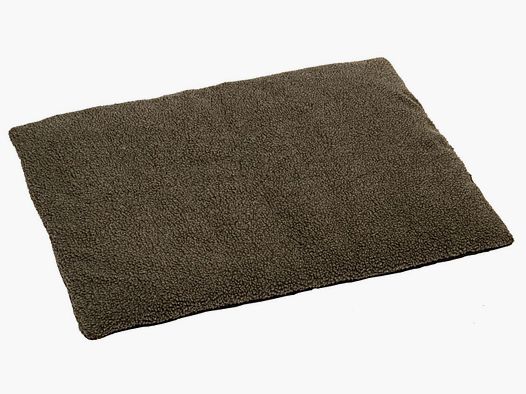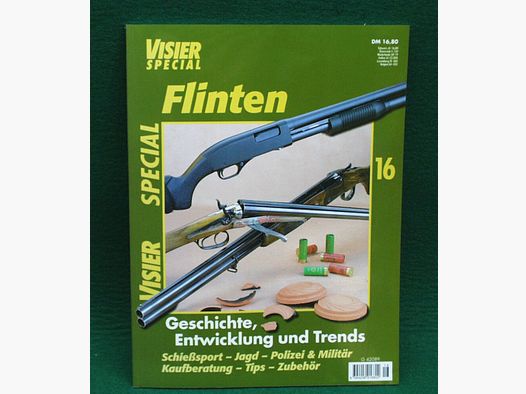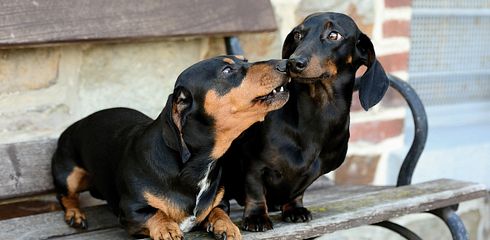The Golden Retriever - one of the most popular dog breeds
The Golden Retriever is a popular dog breed, known especially for its friendliness, intelligence, and strong work ethic. They are excellent family dogs and are often used as therapy dogs, rescue dogs, and guide dogs for the blind. They are also active dogs and require daily exercise and engagement. Golden Retrievers are generally friendly and good-natured, but they also need regular training and socialization to manage their energy and need for movement. They have an average lifespan of 10-12 years. Here you will find the most important information summarized in detail.
Profile of the Golden Retriever
| Size and Weight | 50-61 cm, 25-35 kg |
| FCI Group | 8: Retrievers, Flushing Dogs, Water Dogs |
| Origin | United Kingdom |
| Colors | Gold, Gold, Cream |
| Life Expectancy | 10-13 years |
| Areas of Use | Hunting (Retrieving), Guide Dog for the Blind, Police, Rescue, Family, Companion, and Therapy Dog |
| Dog Sports | Agility, Dummy, Obedience, Retrieving |
| Character | very intelligent, obedient, friendly, reliable, social, trustworthy |
| Exercise and Care Needs | both high |
| Child and Family Friendly | both yes, the Golden Retriever is very social |
Origin of the Golden Retriever
The St. John's dogs from Newfoundland are considered the ancestors of most retriever breeds. This breed was developed as a resilient working dog breed. Through trade, the dogs arrived in England in the 19th century, where they were crossed with Irish Setters, resulting in the Wave-Coated Retriever. From this, the retriever breeds Golden Retriever, Labrador Retriever, and Flat Coated Retriever developed as retrieving dogs for small game hunting.
Character and Nature of the Golden Retriever
Golden Retrievers are very eager to learn dogs that are highly adaptable. These dogs have a strong motivation to follow their leader and to please them ("Will to Please"), and they are very friendly, social, and patient. Due to these traits, they are suitable not only as hunting dogs for non-aggressive game but also as therapy, companion, and family dogs. Because of their high intelligence, they are also excellent as guide dogs, rescue dogs, or even scent dogs. Since they are genuinely friendly without reservation, they are not suitable as guard or protection dogs, but they are well-received wherever dogs are welcome. Golden Retrievers remain playful, active, and trusting throughout their lives.
Another very important trait is that Golden Retrievers are very fond of water. Generally, these dogs love to swim and should be allowed to do so from time to time. It is important that Golden Retrievers are kept busy, which includes physical exercise and activities as well as mental stimulation. Activities such as dog sports or search games are well-suited for them, as the Golden Retriever excels in these due to their excellent sense of smell, which is also very good for dogs.
The trusting behavior of the Golden Retriever usually extends to other animals in the household.
Appearance of the Golden Retriever
The Golden Retriever is medium-sized and is perceived by most people as very friendly. Golden Retriever puppies are truly the epitome of a cute, lovable appearance. Adult males reach a shoulder height of 55 to 60 cm, while females are about 50-55 cm. Their weight ranges from 25-40 kg - however, it should be noted that Golden Retrievers tend to become overweight if they are not sufficiently exercised.
The dogs have a double coat, with the undercoat being water-repellent. The fur lies flat or wavy on the back, while it is longer on the belly, legs, and chest. The coat makes the dogs resistant to both cold and water. The color of this dog breed is whitish, gold, or cream-colored; darker shades are undesirable.

Behavior and Training of the Golden Retriever
Compared to other dog breeds, Golden Retrievers are considered very easy to handle, as their desire to please their caregivers is very pronounced. Consistent yet loving training is just as necessary for Goldies as it is for all other dog breeds. If there is an ideal beginner dog, it is the Golden Retriever.
Golden Retrievers are very affectionate and do not like to be alone. It is therefore best to integrate the dog into daily life and take him along whenever possible. To mentally and physically challenge him, a high level of physical and mental activity is required. It is advisable to provide him with suitable activities, whether as a hunting or companion dog or through dog sports.
The Golden Retriever is a very social dog and should live within the family circle. An isolated life in a kennel is detrimental to this sociable animal; it is better to keep it in a house with a garden. If regular exercise is provided, keeping him in an apartment is also unproblematic.

How should a Golden Retriever be fed?
Golden Retrievers require high-quality food that is adjusted to the dog's energy level. In principle, it does not matter whether the dog is fed wet, dry, or BARF. It is important not to overfeed the dog throughout the day, as Golden Retrievers tend to gain weight - and that individual portions are not too large. If this breed overeats, it can lead to gastric torsion, which can quickly become fatal if left untreated.
Health – Life Expectancy & Common Diseases
The Golden Retriever became very popular in the 1990s, and the breed has unfortunately been overbred by unscrupulous breeders - as a result, the breed is often burdened by hereditary diseases. These hereditary conditions include epilepsy, allergies, eye diseases such as cataracts and retinal degeneration, hip dysplasia, as well as elbow problems. Professional breeders are trying to counteract this - we therefore strongly recommend choosing only Golden Retrievers from controlled breeding.
Once you have acquired a Goldie, it is important to check the dog's eyes, paws, and ears. The life expectancy of the breed, with good care, is up to 15 years.
Proper Care for Golden Retrievers
The dog's coat should be brushed more frequently, especially in summer and spring, to remove the undercoat from winter. If the dog gets wet, it should be thoroughly dried with towels. Golden Retrievers love water but do not need to be bathed often. Since the dog has floppy ears, they should be checked for inflammation and dirt. If the dog has an infection in or around the ear, it will often scratch, shake its head, or have an unpleasant smell coming from its ears - off to the vet!
Like all dogs, the dog should be vaccinated annually and regularly dewormed.
Activities for the Golden Retriever
The Golden Retriever was bred as a retrieving dog for small game hunting and is very energetic and robust. To meet these abilities and the associated demands, the dog must be sufficiently exercised. Long walks through the terrain are suitable for this, as well as taking the dog along as a companion on bike rides or horseback rides. Satisfactory activities for the dog also include tracking work, mantrailing, or dummy training.
Does the Golden Retriever Suit Me?
You have a family with children, lead an active, sporty life, enjoy being outdoors, and even go hunting for small game? However, you are still a beginner when it comes to dog ownership? Then a Golden Retriever is the perfect dog for you! However, if you need a guard or watchdog, or a dog with high prey drive because you want to drive wild boars out of the thicket as a handler, then you might want to look for another breed - because the lack of sharpness is the only disadvantage of the breed - or possibly its advantage.
It is important for the care of the Golden Retriever that you engage with the dog - both physically and mentally. Additionally, he is social and would prefer to always be involved.



























